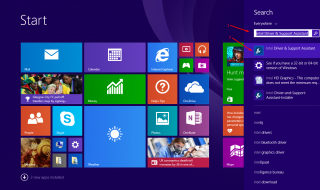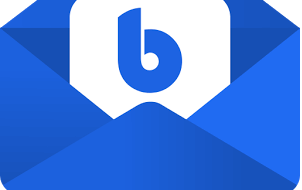Keeping an eye out for the right candidate is hard, but finding the right interview questions to challenge the candidate is even harder.
An average of 250 candidates apply for a job listing, so it requires a lot of work sifting through the profiles of each, especially in the technology sector which is known for its tough interviews, and it’s no wonder why.
Programming is one of the most challenging jobs out there, so hiring only the best of the best seems like a natural strategy to filter out unqualified candidates.
In order to do that, you need some interactive interview questions that are capable of unearthing that information in your potential employees.
The trickiest part about coming up with these kinds of questions is balancing them between being too simple and too difficult.
You don’t want to scare away anyone with your inquiries or have them answer too easily because they already know everything you ask them within a few minutes.
With this in mind, here are top 20 clever interview questions that help you determine whether or not your C++ developer candidate has what it takes:
Contents
- Top 20 Clever Interview Questions to Unearth the Information You Want From Your Interviewees
- Have you taken any programming pre-employment tests in the past?
- Everyone is using Scala, React, and Python. Why shouldn’t you use them?
- Your company is starting a new project and has limited resources to select only one language for programming. You can pick either C++ or Python. Which one do you choose and why?
- Name three problems programming languages currently face and how to solve them.
- How would you assess whether a piece of code is well-designed or not?
- Define ‘refactoring’ and explain why it’s important.
- What techniques would you use to test the reliability of a software system?
- What’s your favorite programming language? Why?
- What was the biggest mistake you’ve made as a programmer, and what did you learn from it?
- How do you collaborate and communicate with other devs?
- How do you handle communication issues with teammates?
- Is there any Computer Science course that you want to take but haven’t had the chance yet? Why not?
- Where do you see the programming industry heading?
- What would you like to change about coding?
- What is your proudest moment in coding?
- Define encapsulation. Why is it important?
- Define Polymorphism. Why is it important in programming languages like C++?
- Are there any tools that help with code quality/robustness that you’d recommend using?
- Why do we need Quality Assurance in software development?
- Describe your experience working with agile processes.
- Wrapping up
Top 20 Clever Interview Questions to Unearth the Information You Want From Your Interviewees
Have you taken any programming pre-employment tests in the past?

One of the first things you must do is to make sure that the candidate has the skills that your job requires. 85% of people lie on their resumes, so you never know what skills they really have until you test them.
This is especially true for programming jobs, as there are dozens of different programming languages you could potentially hire for.
If the person has the required skills, then it’s a good sign that they’re a competent programmer. If they don’t, then you’ll want to find out how quickly they can learn.
One common way to do this is to ask the interviewee about their best C++ programming pre-employment tests in the past. If they have, you can then ask them what their results were.
If they’ve not taken any programming pre-employees test in the past, make them take that now.
Preferably, do it even before you start your interview, so you know if the candidate really has the skills you require.
Everyone is using Scala, React, and Python. Why shouldn’t you use them?
74% of candidates look for opportunities to present their experience, skills, and knowledge during the hiring process.
So, one of the best ways to learn more about a candidate’s experience, knowledge, and skills is to ask them to critique something.
If you ask about a programming language or technology that’s currently very popular in your industry, you can get a lot of insight into how the candidate thinks.
What’s more, this question gives you an opportunity to find out if the candidate has a healthy amount of skepticism towards, or curiosity about, all the hype surrounding the technologies.
A savvy programmer will tell you that they’re generally not a fan of “new shiny”. They’ll tell you that they’re more interested in the “right tool for the job”.
A candidate who’s more impressed with the latest technology than the actual work they need to do is not a good fit for your team.
Your company is starting a new project and has limited resources to select only one language for programming. You can pick either C++ or Python. Which one do you choose and why?
This question is designed to see how a programmer approaches a real-world problem, and how they think through a solution.
If a candidate comes up with a good solution, this is a good indicator that they can be a valuable asset to your company.
More than that, this question is designed to expose any biases they may have towards certain programming languages.
If the interviewee says they’d choose C++, dig a little deeper to make sure they’re not just trying to please you or fit in with the culture at your company.
At the same time, if a programmer says they’d choose Python, it may be a sign that they don’t fully appreciate the benefits of C++ as a programming language for a lot of different scenarios.
Name three problems programming languages currently face and how to solve them.

This question is designed to see if a candidate really knows the ins and outs of programming languages.
It’s also an opportunity for them to show how they think and what they value in terms of programming languages. A good answer will be broad and general.
For example, a programmer may say that programming languages are too complicated or that they lack consistency. It’s up to you to follow up with more specific questions, like “What do you mean by complicated?” or “How do you define consistency?”
Make sure you follow up with questions that allow you to learn more about their experience and knowledge.
How would you assess whether a piece of code is well-designed or not?
This question lets you see how a candidate approaches the process of evaluating code.
If they have a good, thorough process, they must have spent a significant amount of time writing code and that they value consistency.
A good candidate will explain that they’d ask questions like, “Why does this code exist?” and “Does this code really need to be in this method?”
They’ll also talk about how they’d look for code smells, like excessive nesting, low cohesion, and high coupling.
Any programmer worth hiring should be able to give you a thorough, thoughtful answer to this question.
Define ‘refactoring’ and explain why it’s important.
If a programmer doesn’t know what refactoring is or how important it is, they’re probably not writing quality code.
This is a question designed to see how a candidate approaches code. If they have a good answer, it’s likely that they write code that’s easy to maintain and debug.
A good answer to this question includes a mention of “keeping code clean and readable.”
A programmer who’s done this before should be able to explain how refactoring helps them “maintain a consistent style” or “keep related code together.”
They’ll also talk about how it makes it easier to “read and understand code as you come back to it” after a period of absence.
What techniques would you use to test the reliability of a software system?
This question helps assess how a programmer approaches the process of building reliable software.
If a candidate has a good answer, it’s a sign that they understand the importance of testing and that they’ve likely done a fair amount of work writing tests.
A good answer mentions things like “mocking out dependencies” and “making sure code has enough coverage.”
It’s also a good idea to follow up with specific questions like, “What types of tests do you write?” or “What coverage do you aim for?”
What’s your favorite programming language? Why?

This is a great open-ended question that’s designed to see how a programmer approaches their career and what they value in a programming language.
A good answer to this question is broad and general.
For example, a programmer may say that their favorite language is C++ because it’s “easy to use” and “very popular.”
It’s up to you to follow up with more specific questions, like “What do you like about C++?” or “What makes C++ popular?”
What was the biggest mistake you’ve made as a programmer, and what did you learn from it?
Candidates can sometimes get cagey when asked about their biggest screw-up. If this happens, it’s a good opportunity to see how they react to the question.
If they get defensive or try to downplay the mistake, this could be an indication of how they’ll respond to criticism or mistakes made by their team members.
Alternatively, a candidate who takes the question at face value and dives into the details of their mistake will likely be a better fit for your team.
How do you collaborate and communicate with other devs?
This question helps you see how a candidate prefers to interact with their peers at work. It also lets you know how well they’re able to adapt to a new team dynamic.
If they’re not happy with the current style of communication at your company, you have a choice to help them adjust their communication style to fit into the company.
How do you handle communication issues with teammates?

86% of the workforce attribute any company failures to poor communication, so make sure your next hire has good communication skills.
It is recommended to ask this one in relation to a specific example of poor communication that’s already happened at your company.
This will let you know how the developer would handle the scenario if it arose again.
The more senior the developer, the more significant this question is.
Senior developers are often responsible for mentoring newer team members and creating an environment in which people feel comfortable with asking questions and making mistakes.
It’s also important for senior developers to be able to communicate effectively with each other.
If one developer feels like another is stepping on their toes, it could lead to team conflict and an unproductive work environment.
Is there any Computer Science course that you want to take but haven’t had the chance yet? Why not?
A developer who says they’d like to take a course but haven’t had the chance yet shows that they’re eager to learn more and are self-motivated. This is a good indicator of how they’ll fit into your team.
Where do you see the programming industry heading?
This question determines how open-minded and forward-thinking the candidate is.
A candidate who doesn’t have an idea of where the industry is heading doesn’t necessarily have to be a bad hire, but you can use their response as a way to gauge their openness to new ideas and technologies.
If a candidate has a clear idea of where the industry is headed and how it will get there, you can use their response as a gauge for how proactive they are in terms of keeping up with new trends and learning new skills.
What would you like to change about coding?
This question reveals a lot about a candidate’s values and their willingness to learn.
A developer who says they want to change something about coding is interested in continuous improvement.
If a candidate says they don’t want to change anything about coding, they have a sense of pride in their current practices.
This indicates that you need to help them understand why things are done a certain way at your organization.
If a candidate says they want to change something but can’t come up with a concrete answer, it indicates that they’re not as open to change.
Still, it’s important to ask this question because it can show you how comfortable a candidate is with reflecting on their own practices.
What is your proudest moment in coding?
Use this question to learn more about a candidate’s biggest accomplishments, and what they’re most proud of. Also, use this question to gauge how a candidate responds when they’re asked about their proudest accomplishments.
If they have a specific story in mind, use their answer as a conversation starter and a way to get to know the candidate better.
Define encapsulation. Why is it important?
One of the interview questions that every developer should know is encapsulation. It is one of the crucial concepts in programming languages like C++.
A good answer to this question should mention “protecting the internal implementation details of a software module” or “changing the implementation details of a module without disrupting the rest of your program.”
Define Polymorphism. Why is it important in programming languages like C++?
Polymorphism is, again, a crucial concept, and a developer must know what it is.
A good answer to this question includes phrases like “same operation can be performed in different ways” or “a way of managing change” etc.
Are there any tools that help with code quality/robustness that you’d recommend using?
There are plenty of tools that can help you ensure the quality of your code. These include things like unit tests, automated code coverage reports, and static code analysis.
If you’re interviewing a C++ developer and they don’t know about these tools, then it’s an obvious sign that they’re not someone who takes their code quality seriously.
By asking them if there are any tools that help with code quality/robustness that they’d recommend using, you can get a better idea of how seriously they take their work.
Why do we need Quality Assurance in software development?
Quality Assurance (QA) is a part of software development that’s often overlooked.
However, it’s a critical part of creating robust software that will work as expected.
When hiring C++ developers, make sure that they have a good understanding of why QA is needed.
Describe your experience working with agile processes.
Agile processes are a type of software development methodology that has gained a lot of popularity in recent years.
By asking candidates how their experience working with agile processes has been, you can get a better sense of their understanding of the method and how they think about creating software.
You can also find out if they prefer waterfall or agile methodology and why.
Wrapping up
Now that you’ve made it to the end of this article, we hope that you have a better idea of what questions you want to ask your C++ developer candidates.
We also hope that you feel more prepared to interview candidates and hire the right person for the job.
With these top 20 interview questions, you can make sure you’re hiring the right fit for your organization.
––––––––
Author’s bio

Saifullah Napar is a content writer working in this field for the past three years. He has been writing on topics such as business technology, blockchain, fintech, and digital marketing. (LinkedIn)



